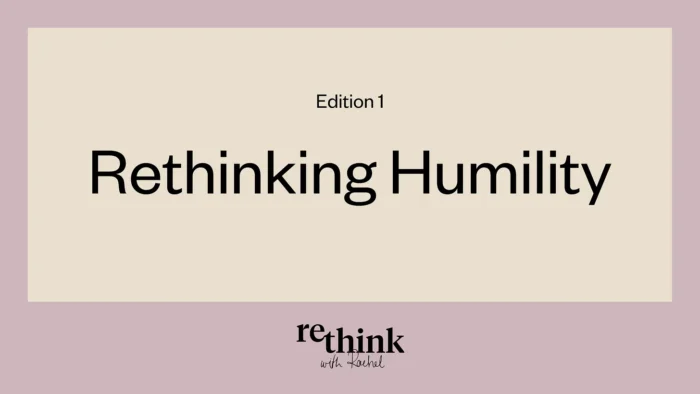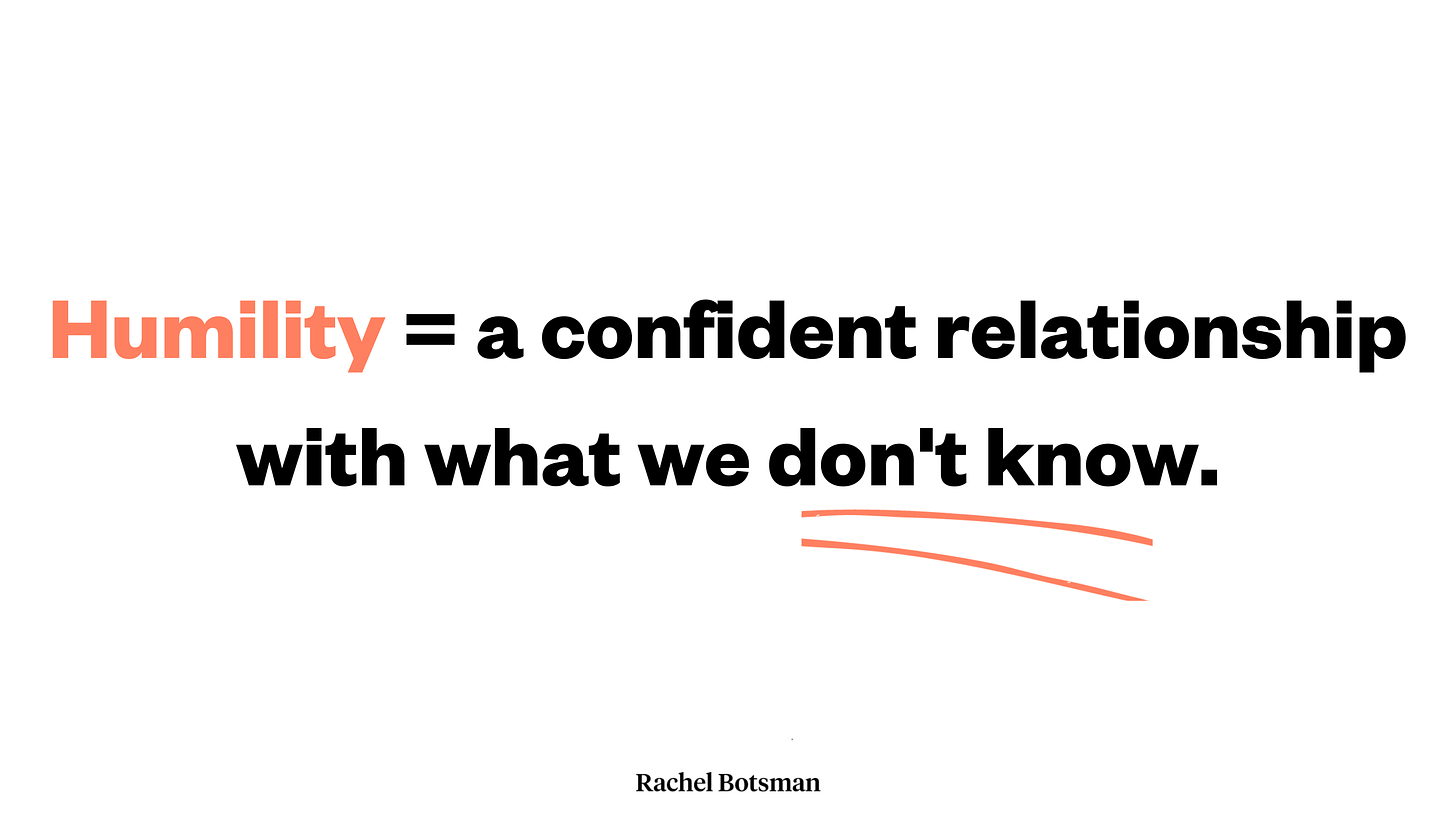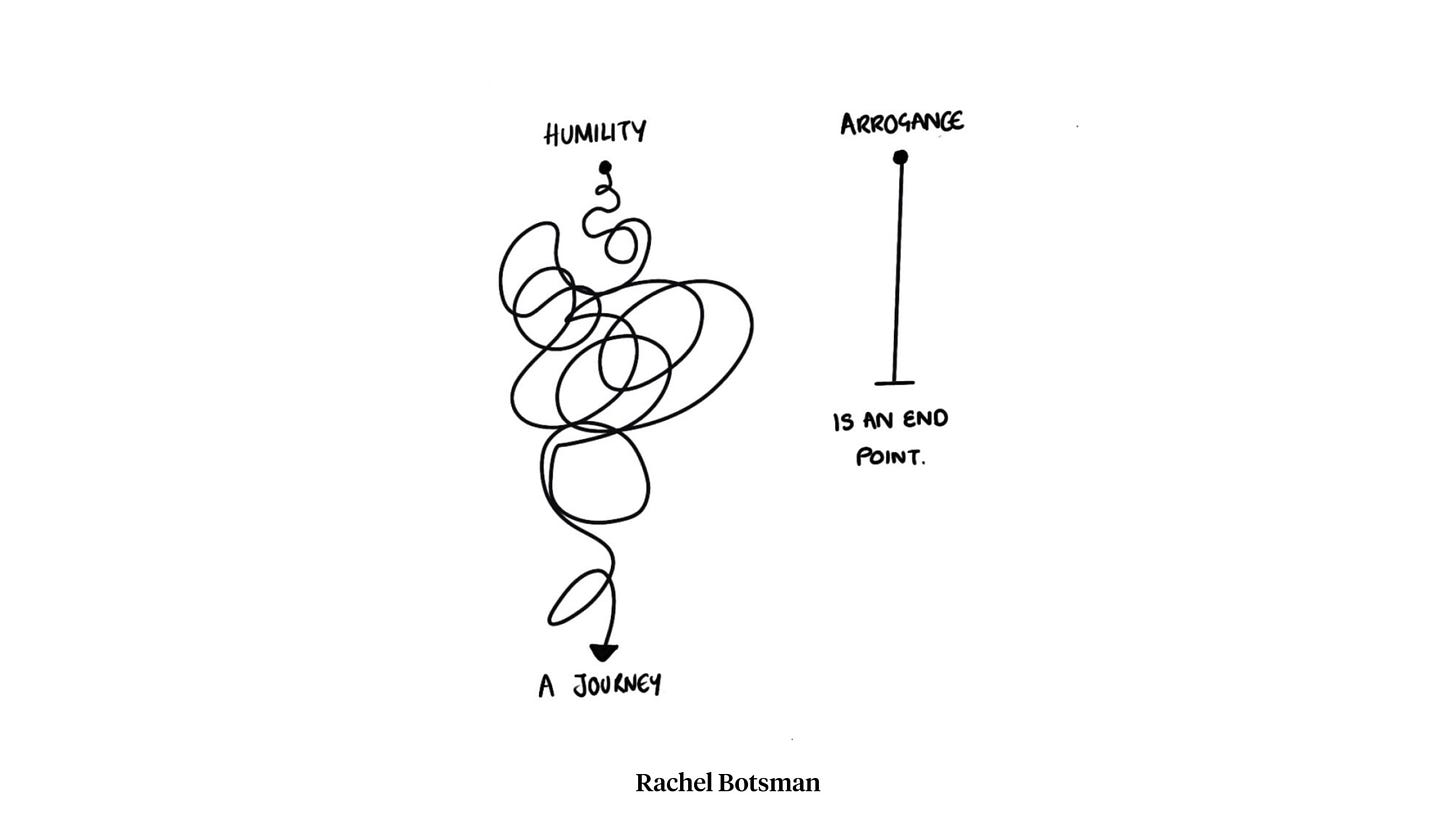Guest Post by Rachel Botsman | How to Act With More Humility

This is a guest post by WWSG thought leader, Rachel Botsman, originally posted here.
In a TED talk I gave in 2012, I shared an idea I had been working on called ‘reputational capital.’ In short, it was based on the concept that your online reputation would become more powerful than your traditional credit history. It wasn’t a bad idea per se, but it was deeply flawed; overlooking discrimination and many other issues that would accompany the rise of digital rating systems.
A few years later, I gave an interview with a journalist who was fixated on the talk. I replied that I had changed my mind and wanted to explain why. The journalist laughed dismissively. He thought it was funny I had revised an idea about reputation, that I staked my reputation on!
I rarely get frustrated in interviews but clearly remember responding, “Why should humility undermine my credibility?”
Humility doesn’t mean a lack of confidence or credibility.
The challenge is admitting that you were wrong is often used as a fuel by your critics or even your enemies, especially for leaders.
Humility isn’t about having a low opinion of yourself. It doesn’t mean you can’t be confident and ambitious. Far from it.
Some of the most successful people I’ve met – from world-famous entrepreneurs to sports stars to authors – are incredibly humble. David Coulthard, Jane Goodall, Ant Middleton, and Elizabeth Gilbert come to mind immediately. They believe they can do extraordinary things. Their ideas are big and bold, but they are continually aware of the pitfalls of overconfidence – how it can leave you blind to what you do not know.

You need humility, to expose the flaws and blind spots in your knowledge. To admit you were wrong. It gives rise to…
Curiosity: A genuine interest in new ideas and willingness to hear feedback
Open-Mindedness: Listening to other people’s ideas and searching for other points of view.
Vulnerability: Being willing to ask for help when we need it.
Respect: Treating other people, no matter who they are, with attention, and appreciation.

If you struggle with humility, it can be helpful to see it as the force against complacency. It will enable progress and stop you from standing still.
In a world of deep divisions, we need more humility. Think of what flows from a more humble society – sincerity, fairness, truthfulness, and modesty. Practicing humility is hard. But having the self-awareness to know what you know and don’t know is a skill we can develop.
Humility is something we can all get better at – not just acknowledging our mistakes and learning from them but being open to understanding where we might be wrong.
Warmly,

